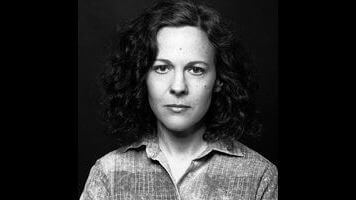The Country Of Ice Cream Star is an audacious post-apocalyptic novel

When the plague comes it sweeps across the country and lingers in the air for 80 years, annihilating races and sparing no one over the age of 20. If all post-apocalyptic works are really about the anxieties of the present, Sandra Newman’s The Country Of Ice Cream Star—a novel of staggering, sometimes maddening, ambition—considers the broadest and most potent. The deepest fears we have about the future are really about the path something is on, and how that path will lead to the ruin of future generations. Helen Lovejoy’s famous utterance has become a catchphrase, a joke about hysterical moral policing, but its sincere intent is inarguable. What’s so disquieting about The Country Of Ice Cream Star is that it is set in a land where there is no one to think of the children.
Generations have passed since the “posies” wiped out the adults, and civilization persists in mutated form, as you might expect when teenagers are running the show and disease prohibits wisdom and long-term parenting. Ice Cream Star (her name taken from a relic of our world; her people count Dinty Moore Two Fall, Mohammed Three Insulting, and Dollar Saver Six Fall among their ranks) is a 15-year-old “Sengle,” a member of a roving tribe of hunters led by her brother, who is older and getting to be ominously so. As he begins to exhibit symptoms of the disease, Ice Cream hears whispers of a hidden cure and sets out to find it with a mysterious “roo” who claims to be 30.
While the book broadly follows an established path—a heroine, her journey—it is far more personal and political than that outline suggests. It is significant that roos (a different tribe) and pivotal members of this society are white, while Sengles are black, to the point where the book sometimes plays like an extended Katrina allegory. Parity has been reached on some gender issues—a man laughs off the idea that men should be favored for the rank of tribal “sergeant”—but rape is a constant threat, including by one-time allies. In the book’s most audacious material, Ice Cream is named a “Maria,” a kind of monarchical Virgin Mary who is less a religious icon than an empty political figurehead.
As a critique of the hypocrisy of religious institutions, this is scathing, though some of Newman’s targets are too on-the-nose. There are clunky metaphors for neoconservative military policy and right-wing social issues; at one point Ice Cream is interrogated on her views on homosexuality and abortion (including “tricky cases” like “if she rapen by her brother”), a moment that’s more jarring than illuminating. Bold parallels are always welcome in science fiction, but here they’re muddled as much as they’re insightful.
All of this is done in the book’s most startling and memorable element: Ice Cream’s voice. It’s a remarkable creation, an approximation of an English whose evolution failed to be nurtured past adolescence and then ossified with new rules and structure in place. A representative paragraph: “NewKing Mamadou bell severe like blackness in a starry night. His every move go graciose as fire. He seventeen, and tall in height, large in ferocious strength. Wear godscars on both his cheeks. Got one tooth broken from our wars. In him, this also be bellesse. Yo girls think upon him, like all boys think on myself and suffer in sleep.”
As much as the voice creates a kind of poetry—and it does that, too—it just as often acts as a layer between the story and the reader. No matter how well Newman executes it—and it is never less than wholly convincing, like a dispatch from some alternate universe—scenes that are designed to be suspenseful can’t help but lose their tension and momentum when lines have to be read twice to confirm their meaning.
Your mileage on this kind of thing may vary (for others, it might make an ideal audio book selection). Those who rhapsodized over the central section of Cloud Atlas will no doubt take to another challenge, though The Country Of Ice Cream Star is not quite on that level, linguistically or humanistically. This is a bleak and brutal book, but when one encounters a vision of this scale and originality, that must be respected.